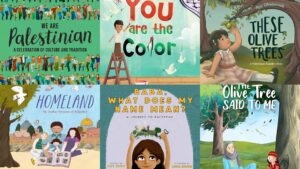Whatever the method you choose for raising your bilingual children, make sure that they are exposed to the minority language (this being the non-common language in your wider environment) to at least 30% of their time, which roughly means about 25 hours a week.
Myths, Methods and Tips on Raising Multi-Lingual Children

My son is 4 years old.
We live in Barcelona. He’s surrounded by Spanish and Catalan languages. My family, however, lives in Bosnia-Herzegovina, more than 1200 miles away. And yet, he speaks Bosnian as fluently as I do.
How did I manage to teach him to speak my mother tongue in a foreign environment? By going against some persistent myths about multi-lingual children.
“If they learn two languages at the same time, they’ll learn slower”
This is the most persistent myth of them all. It is not entirely false, but it is very misleading. Let me explain.
Consider a single-language child. They will learn a language at their own pace. A bilingual child will have to absorb twice as many words, but it won’t take them twice the time. If the child is exposed to three languages, the effect is even greater.
Think of it as a “buy one, get one free” offer in the supermarket. For the time of learning one language (plus some) your child will learn more than one language.
“If they learn two languages at the same time, they will be confused”
False, again. They learn differently, but they don’t confuse the languages.
Children are uncannily capable of classifying things, and they are perfectly aware of which language you are speaking to them.
There is a moment in time when they use all the languages in a delicious mix when they try to explain something. Isn’t it wonderful? They will fill in a word in English where they miss a word in Urdu, for example, in order to get understood. A monolingual child has no such advantage.
After that initial period of mix-and-match, they’ll learn to differentiate the languages properly. Don’t worry and keep speaking to them.
“Children should first learn one language and then another”
False, again. They don’t “learn” as we do. They don’t learn it in sequence, with grammar and vocabulary lessons. They acquire the words and the sounds and intuitively infer the grammar rules.
There is a short “window of opportunity” where your children can learn new sounds intuitively, which is the first five years of life. This is why adults struggle with pronunciation when they learn a new language, but children do it effortlessly.
Let’s say that you want them to properly pronounce the Arabic qaf sound, just like you? Speak to them when they are they are babies. They’ll pick it up and pronounce it flawlessly when they are older.
METHODS OF RAISING BILINGUAL CHILDREN
There are two main approaches to teaching children two languages.
One Parent, One Language (OPOL)
If you come from different language backgrounds in your family, sticking to each one’s native tongue is the easiest way to teach your children both languages.
I use OPOL. I speak to my son exclusively in Bosnian. My wife speaks to him in Catalan.
You must be consistent. Your child will have different fluency for every language at a given time. Don’t cheat by speaking to them in the other language, you’ll be depriving them of learning opportunities.
I’ve seen many non-Spanish parents speaking to their children in Spanish as they take them to school, where they will speak Spanish as a common language. They will wonder later why their children don’t speak their mother tongue well.
If you are living somewhere where your language is not widely present (like I do), it is strange to speak to your child in your language when outdoors. Just stick with it, it will pass.
I use a simple rule to speak to my son when in public: if it’s between us then we use Bosnian, if we talk to other people then it’s the common language. The key is to be consistent. Children need consistency in order to learn.
Minority Language at Home (MLAH)
MLAH technique works best when both parents speak the minority language. In that case, home becomes a “language bubble” that envelops the child while outside the home they will speak the community language.
The children will pick up the community language very quickly. As I said before, it won’t help if you speak the same language to them at home. Use the opportunity to speak to them in your native tongue.
Minimum Exposure of 30%
Whatever the method you choose for raising your bilingual children, make sure that they are exposed to the minority language (this being the non-common language in your wider environment) to at least 30% of their time, which roughly means about 25 hours a week.
More than that, perfect if you can pull it. Less than that, chances are that your child will understand you but won’t speak actively.
How can you get 25 hours a week of the minority language?
Use the most of your time with your child to speak to them. Ask them questions. Tell them how your day went. Tell them stories. Don’t waste their family time on watching cartoons or playing passively.
Use content in the minority language. Get them to watch cartoons or children’s programs in your tongue (my son adores my favourite childhood cartoons). Buy and read them books in your tongue or translate it if it’s a book in another language.
Find other speakers of the language and hang together. Let them play with other children that speak the same language.
If you travel to your home country, get them into a summer camp or similar activity with other children. They learn best when they are talking among themselves.
PRACTICAL TIPS
What if your child understands you but answers in the other language?
First, be patient.
If they are just learning to speak, they will lean on the language they are most comfortable with. Just repeat their answer in your language and keep on. They will pick it up after you do it a couple of times.
I use the following trick with my son when he answers me in Catalan. I pretend that I don’t understand him. I keep putting blank face until he relents and answers in Bosnian.
Sometimes he won’t know a specific word and then I repeat his answer putting the correct translation in. Now he asks me beforehand: “Daddy, how do I say … in Bosnian?”.
My child makes mistakes in my language. What should I do?
That’s normal. When learning a new language, you also make mistakes until you don’t. It’s the same with children.
Children get the grammar rules by association with other known words. They will tend to make the plural forms or verb tenses, for example, in regular fashion and they’ll learn later that there are exceptions.
You shouldn’t correct them by saying “you don’t say X, you say Y”. Instead, repeat the sentence they said in the correct way.
For example, if they say “I have seed a bird” you should say “Ah, you have seen a bird? Which one?“.
A couple of repetitions for the same pattern and they will learn.
FINAL THOUGHTS
Raising a multi-lingual child can be challenging, on top of the “usual” parenting challenges.
Don’t worry if you feel like you are not getting anywhere. It took me two months for my son to call me “tata” which means “daddy” in Bosnian. Just keep on and speak to them.
They will be thankful for that one day.


